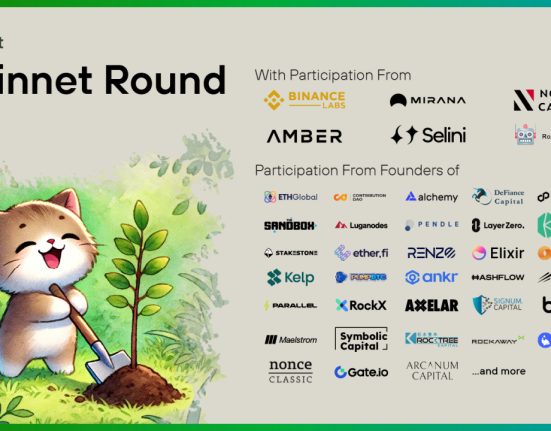Blockchain technology has revolutionized how we perceive digital trust and security, laying the foundation for cryptocurrencies like Bitcoin and Ethereum, as well as a myriad of other applications. At the heart of this technology’s functionality and reliability are nodes. But what exactly is a node in blockchain, and why is it indispensable? This blog aims to demystify the concept of nodes, making it accessible, interesting, and informative for all readers.
THE BACKBONE OF BLOCKCHAIN: UNDERSTANDING NODES
A node, in the simplest terms, is a point within a network. In the context of blockchain, a node is any computer that connects to the blockchain network. These nodes crucially play a role in operating, maintaining, and securing the network, contributing to blockchain’s renowned robustness as a technology.
VARIETIES OF NODES: THE UNSUNG HEROES OF BLOCKCHAIN
Blockchain nodes can be categorized based on their roles and the functions they perform within the network. The primary types include:
- Full Nodes: These are the heavy lifters, maintaining a complete copy of the blockchain ledger, and verifying transactions, and blocks according to the network’s consensus rules. Full nodes are pivotal in enforcing the rules of the blockchain, ensuring no invalid transactions are confirmed.
- Light Nodes (SPV Clients): Light nodes provide a more resource-friendly alternative, storing only essential information and relying on full nodes for additional data. They are crucial for applications like mobile wallets, where storage capabilities are limited.
- Mining Nodes: Often intertwined with full nodes, mining nodes contribute to the network by solving complex mathematical problems to validate new transactions and create new blocks. This process, known as mining, introduces new coins into the system in proof-of-work (PoW) blockchains.
- Masternodes: Found in certain cryptocurrencies, masternodes perform specific functions that regular nodes don’t, such as enabling private transactions or instant transactions. They require a significant investment to run but offer rewards in return.
WHY NODES MATTER: THE PILLARS OF BLOCKCHAIN’S INTEGRITY
Nodes are fundamental for several reasons:
- Decentralization: By distributing the ledger across a vast network of nodes, blockchain eliminates the need for a central authority, making it inherently resistant to censorship and tampering.
- Security: The consensus mechanisms ensure that no single node can alter the blockchain unilaterally. This collective agreement fortifies the network against fraudulent activities.
- Transparency and Trust: With a blockchain, every transaction is recorded and verified by multiple nodes, fostering transparency and trust among participants.
THE LIFEBLOOD OF TRANSACTIONS: HOW NODES WORK
When a transaction is initiated, it broadcasts to the network. Nodes receive this transaction and validate it against the blockchain’s consensus rules. Once they validate it, they group the transaction with others into a block. Then, they broadcast the block to the network to verify and add it to the blockchain. Mining or validating nodes, depending on the consensus mechanism in use, performs this process.
THE CHALLENGE AND REWARD OF RUNNING A NODE
Operating a node comes with its challenges, including hardware requirements, bandwidth consumption, and electricity costs, especially for full and mining nodes. However, the rewards, particularly for mining and master nodes, can be significant. They offer financial incentives in addition to contributing to the network’s health and security.
LOOKING AHEAD: THE FUTURE OF NODES IN BLOCKCHAIN
As blockchain technology continues to evolve, the role of nodes will undoubtedly expand and adapt. Innovations in node technology may lead to more efficient consensus mechanisms, enhanced security protocols, and increased accessibility, allowing more participants to join the network and further decentralize the system.
CONCLUSION
Nodes play a crucial role in maintaining the decentralization, security, and integrity of blockchain technology, often overlooked yet essential components of the system. By understanding the various types of nodes and their functions within the blockchain ecosystem, we can appreciate the complexity and brilliance of this transformative technology. Whether you’re a tech enthusiast, an investor, or just curious about blockchain, recognizing the importance of nodes is crucial. It helps in grasping the full potential of this digital revolution.














